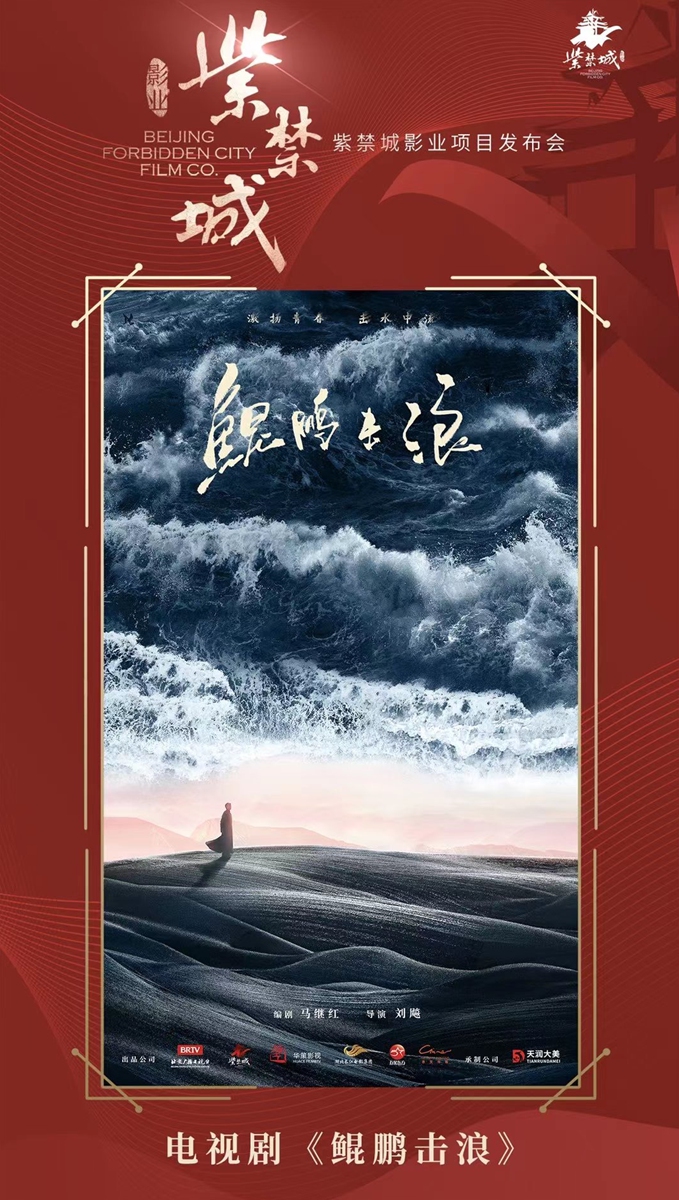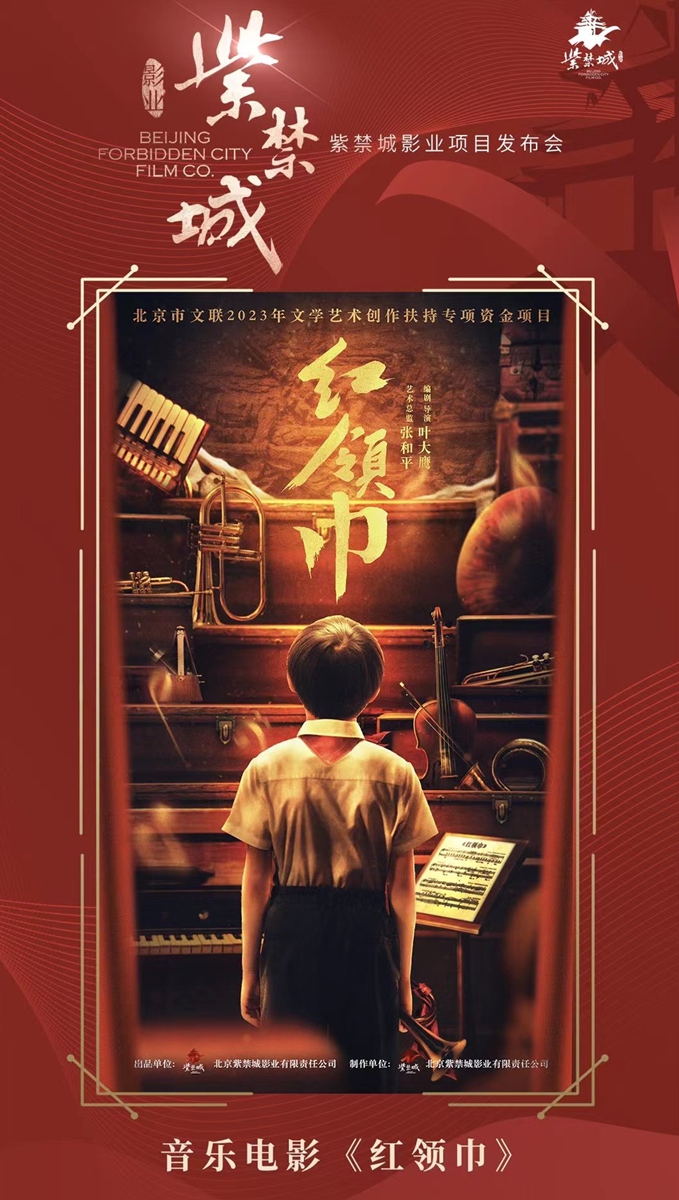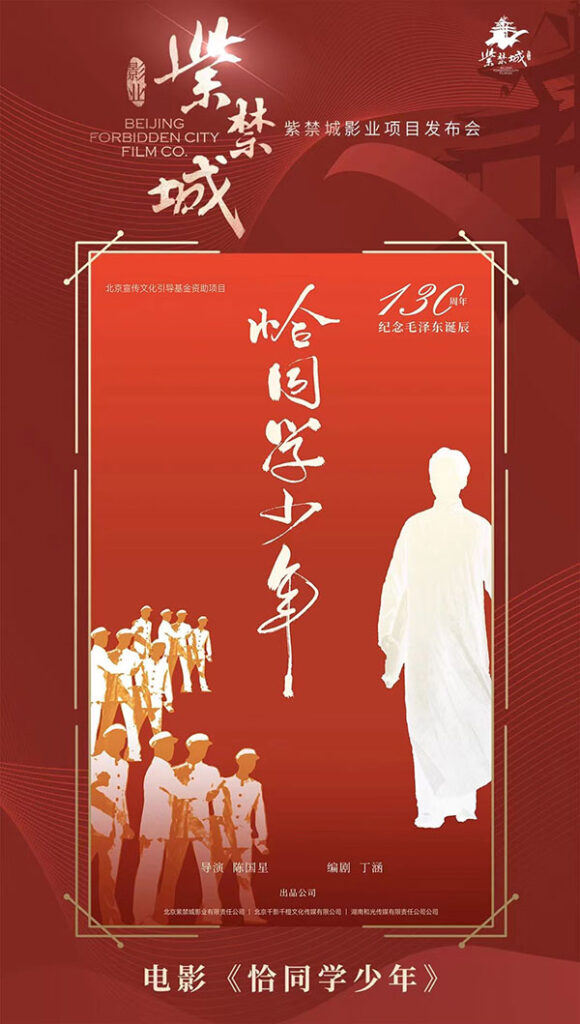A film and a television drama are set to commemorate the 130th anniversary of late Chinese leader Mao Zedong’s birth later this year. Production on the film Qia Tongxue Shaonian (Lit: When We Were Young) is underway. The film’s director Chen Guoxing told the Global Times that the movie tells the story of Mao and his classmates at Hunan First Normal University and features friendship, love, teacher-student relationships, and Mao’s patriotism toward the nation.
Chen said this is the first time he has filmed such a story so he felt both “passionate and apprehensive” in preparing for the film. To thoroughly research this period of history, the film crew read a large amount of Party historical records and literature, as well as conducted field research. To their surprise, they discovered some lesser-known details, which will be one of the highlights of the film.
With revolutionary-themed films and TV series like The Awakening Age gaining popularity among youth audiences, many filmmakers are seeking to uncover the secret to their success.
According to Chen, characters that are “relatable, credible, and can resonate with young people” play an important role. The young Mao in the film has aspects that can resonate with modern youths – he has ideals and aspirations, faces difficulties and also seeks to educate and develop himself in university. His shining qualities as a great figure lie in his exploration of revolutionary truths and his exceptional ability to focus on practicality. This can serve as a good example for young people in the new era.
Chen told the Global Times that he hopes to convey the value of daring to put ideals into practice, the importance of down-to-earth work and the ability to seek the light in times of adversity to the young people. Just like how young Mao Zedong aspired to save the country and explore truth during his time at Hunan First Normal University, conducting research trips to rural areas during summer vacations, visiting workers and farmers after class to understand the situation of various social strata, all of which laid the foundation for his exploration of the revolutionary path to save the country and the people. Through this social practice, Mao gained a deep understanding of the reasons behind China’s poverty and weakness at that time and insight into the transformative power hidden within the impoverished masses. This provided Mao with great solid support for the path he chose and the ideals and beliefs with which he persisted.
Similarly focused on the story of young Mao, the TV series Kunpeng Jilang (Lit: Kunpeng Strikes the Waves) is currently being filmed in Hengdian, East China’s Zhejiang Province and is expected to wrap up on August 20.

Photo: Courtesy of Beijing Forbidden City Film Company
It will be broadcast on December 25, 2023 on the eve of Chairman Mao’s 130th birthday.
The drama reveals Mao’s three-year journey from 1918 to 1921, focusing on how he discovered Marxism and dedicated his life to it among numerous ideologies.
The drama’s scriptwriter Ma Jihong said during a promotional event on Sunday that most of the protagonists are played by actors from the post-1995 generations. She hopes that young people can feel the charm of ideals and the power of faith through their revolutionary ancestors.
Produced by the same film company, another patriotic film, Red Scarf, is set to premiere in 2024 to mark the 75th anniversary of the Chinese Young Pioneers.
The musical film tells the story of Lin Dalin, a 9-year-old orphan who joins the Young Pioneers, and the stories that unfold before and after he donned the red scarf in the 1950s.

Photo: Courtesy of Beijing Forbidden City Film Company
The film’s director Ye Daying told the Global Times that this film will be the last part of his Red Trilogy, which starred the late actor Leslie Cheung (Cheung Kwok-wing) in the first two films Red Cherry and A Time to Remember.
Ye stated that this film is adapted from a true story that “shouldn’t be forgotten over time” and that he hopes to make the audiences aware of the spirit passed down by the red scarf as a corner of the national five-star red flag.
(Global Times)




